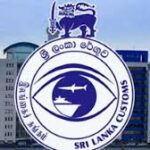
From Revolution to Reversal: NPP’s Week of Political U-Turns Tests Credibility
- CNL Reporter
- August 11, 2025
- Weekly Political Review
- Revolution
- 0 Comments
Weekly Political Review
Wide Angle zoom on to Government’firefighting in fragile economy
By Rohana Jith
Casino approvals, the “Rajapaksa rocket” twist, and conflicting tourism figures leave the Government firefighting while economic fundamentals remain fragile.
Political Review –
Power in politics has a curious way of reshaping principles. In Sri Lanka, this past week’s political developments offered an almost textbook example of how a movement that once stood defiantly against the establishment can find itself defending the very structures it once vowed to dismantle. The National People’s Power (NPP) alliance, led by the Janatha Vimukthi Peramuna (JVP), is now facing accusations of abandoning long-held ideological positions and embracing policy reversals that have left even some of its new-found moderate supporters questioning its credibility.
Episode One: The Casino U-Turn
The first blow to the Government’s carefully cultivated image came with an abrupt reversal of the JVP’s decades-long opposition to casinos. The optics were dramatic: President Anura Kumara Dissanayake, once a fierce critic of gaming and its perceived corrosive effect on society, cutting a ceremonial ribbon at the opening of a new casino facility.

Not long ago, JVP-inspired campaigns were instrumental in blocking Australian billionaire James Packer’s multi-million-dollar casino project in Colombo. Party activists had condemned gambling as a predatory industry, corrupting social morals and exploiting the vulnerable.
This week’s endorsement of a similar venture sparked a wave of public ridicule. Social media, once the NPP’s primary tool of mobilisation, turned into a platform of biting satire. Opposition MPs wasted no time portraying the casino inauguration as a sell-out of the party’s core principles. Government loyalists scrambled to defend the decision, arguing it was part of a broader tourism development strategy — but the damage was done. The episode was read by many as another broken promise, and a symbol of political expediency over ideological consistency.
Episode Two: The ‘Rajapaksa Rocket’ Twist
If the casino decision bruised the Government’s image, the so-called ‘Rajapaksa rocket’ saga risked shattering it. For over a decade, the JVP had accused the Rajapaksa administration of embezzling over $300 million of public funds for a phantom satellite project — derisively nicknamed “Chichi’s rocket” after the former President’s son.
But a surprise revelation came in Parliament last week: Prime Minister Anoma Wijesinghe confirmed that the satellite was real, launched in 2012 without State funds, and had since generated millions in foreign exchange.

The disclosure stunned the public and triggered a wave of online mockery, with critics accusing the NPP of misleading the electorate for years. The fallout worsened when, the next day, a senior Cabinet Minister contradicted the Prime Minister, blaming the Board of Investment (BOI) for giving her “inaccurate data.” The contradiction created the image of a Government divided, with speculation about whether the episode was part of an internal political manoeuvre to remove the BOI chief. Regardless of the motive, the Government’s credibility took another hit.
Damage Control That Misfired
President Dissanayake attempted to reset the narrative in a parliamentary address, outlining plans to secure new Chinese loans for infrastructure projects and stressing the Government’s commitment to economic recovery. Yet, this too drew criticism. Opposition MPs questioned whether such borrowing would violate the IMF programme’s strict debt limits, warning that it risked undermining the fiscal discipline essential for long-term stability.

The President also faced reminders of his own opposition-era speeches railing against foreign borrowing — speeches now contrasted sharply with his current position. The shift reinforced the perception of a Government willing to bend principles for short-term gain.
Policy Paradox and Economic Reality
One of the most striking contradictions is the NPP’s shifting narrative on economic management. Senior figures still insist that past governments bankrupted Sri Lanka through flawed economic policies, yet they now claim the economy is “on the right track” under policies that remain largely unchanged. The logical inconsistency has not gone unnoticed, raising questions about whether the narrative of “policy failure” was politically exaggerated.
The macroeconomic picture remains fragile. While tax revenues have risen, economic growth is still sluggish, and export competitiveness is under threat from rising production costs — particularly in the energy sector. Electricity tariffs saw steep increases last quarter, with the manufacturing sector bracing for further cost pressures.
Long-term economic stability hinges on building reserves to around $9 billion by 2026 and $13 billion by 2027 to avert another default. This will require significant foreign exchange inflows from only two realistic sources: exports and tourism. Both sectors need consistent policy support, reduced input costs, and targeted investment in infrastructure. Yet, the Government’s weekly cycle of political crises has distracted from these priorities.
Tourism Figures Controversy
The week also saw a curious case of conflicting tourism earnings data. Tourism Minister Vijitha Herath announced that Sri Lanka had earned $3.7 billion from tourism in the first half of 2025 — a figure nearly double the official Central Bank of Sri Lanka (CBSL) statistics, which put earnings at $1.71 billion for January–June.

The discrepancy of nearly $2 billion sparked public confusion. Deputy Minister of Tourism Ruwan Ranasinghe later clarified that the Minister’s figure may have included projections or misinterpreted future targets as current earnings. Even with the correction, the incident added to the perception of a Government struggling with message discipline and accuracy.
CIABOC’s Rising Profile
While the Government’s political wing stumbled, the Commission to Investigate Allegations of Bribery or Corruption (CIABOC) enjoyed a surge in public credibility. Once dismissed as ineffective, CIABOC’s proactive investigations and visible enforcement actions have earned it praise across political divides.
A landmark Supreme Court ruling in the MV X-Press Pearl environmental disaster case underscored the Commission’s strengthened role. The Court directed CIABOC to conduct an impartial investigation into the Attorney General’s decision to pursue civil litigation in Singapore rather than in Sri Lanka — a decision the Court suggested warranted deeper scrutiny. The judgment reaffirmed CIABOC as a central player in upholding accountability, potentially salvaging some of the NPP’s moral authority at a time when its political capital is eroding.

Public Patience and Political Risk
Despite the rising cost of living and limited improvement in everyday life, public patience with the NPP Government persists — partly because of its anti-corruption platform and the perception that it is still cleaning up the excesses of previous administrations.
However, patience is not limitless. The pattern of self-inflicted controversies — from the “Ugandan cash” saga to the casino reversal and the satellite admission — risks cementing a narrative of a Government that campaigns on one set of principles but governs by another. In the long run, such a perception could erode the moral legitimacy of its electoral mandate.
The Road Ahead
Sri Lanka’s path to economic stability under the IMF programme remains narrow, requiring discipline, export growth, and tourism revival against a backdrop of volatile global conditions. The geopolitical environment — from energy price shocks to shifting trade alliances — demands consistent leadership.
The NPP Government must decide whether it will continue oscillating between ideological reinvention and reactive crisis management, or whether it will commit to a coherent strategy that restores policy credibility.
The lesson from this week is clear: in politics, credibility is the most precious currency. Once spent, it is harder to replenish than foreign reserves. The coming months will reveal whether the NPP can recalibrate, or whether it will let a series of avoidable controversies define its tenure.

